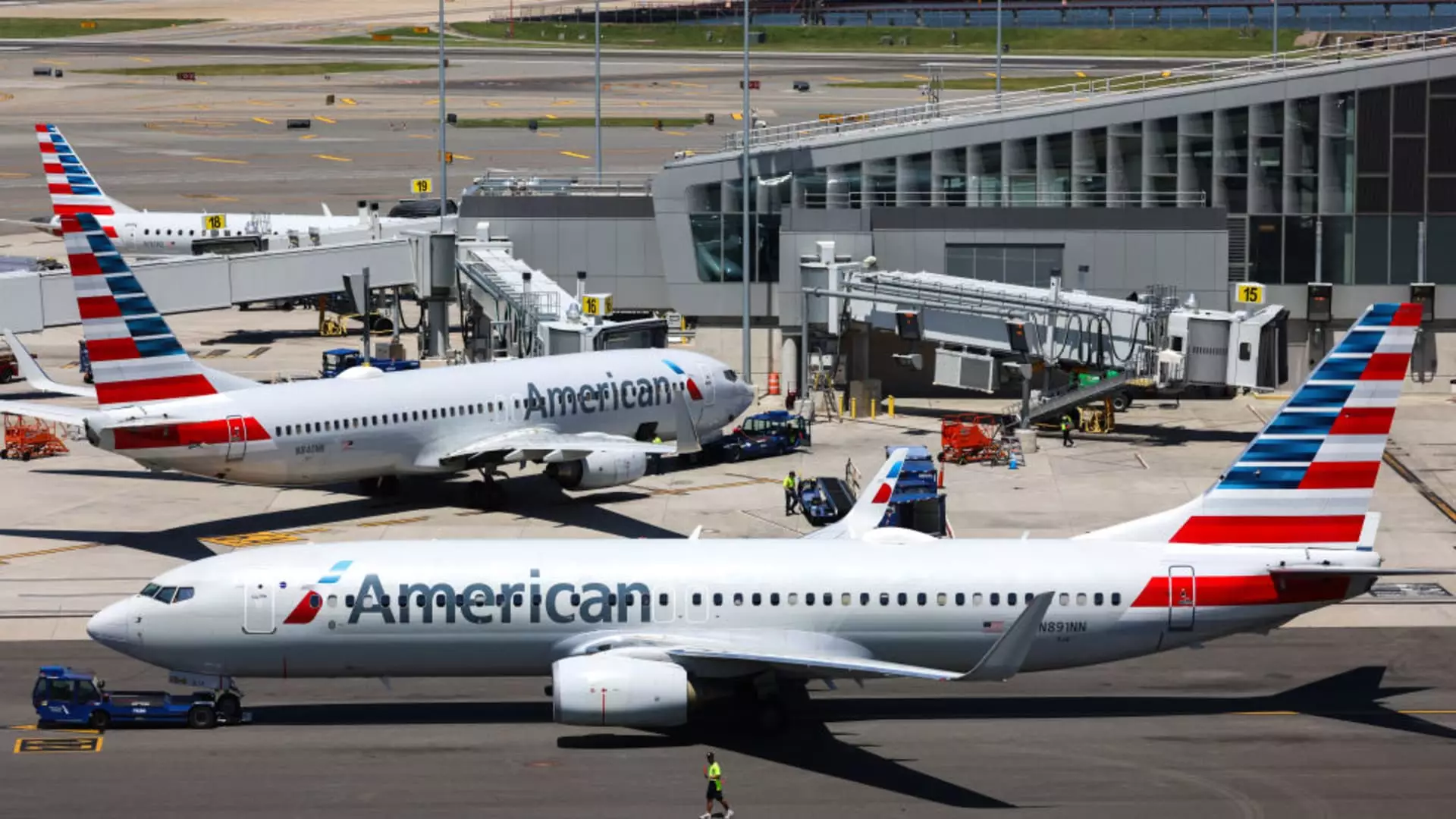In the ever-competitive landscape of co-branded credit card partnerships, American Airlines is reportedly in negotiations to appoint Citigroup as its sole credit card partner. As the airline considers forsaking its longstanding association with Barclays, which has been in place since the merger with US Airways in 2013, they are exploring ways to maximize their loyalty program’s revenue. This article analyzes the implications of this potential move and the evolving relationship dynamics between American Airlines and financial institutions in the sphere of co-branded credit arrangements.
The discussions to consolidate American Airlines’ credit card partnerships reflect a broader trend within the industry. Airlines and other major brands are increasingly seeking to streamline their financial relationships to secure more advantageous deals. Simplifying these partnerships could lead to improved earnings from loyalty programs, which are highly lucrative for airlines. By aligning with a single issuer—in this case, Citigroup—American Airlines aims to simplify its operations and enhance revenue from its AAdvantage program.
The cardholder base is of utmost importance in these negotiations. Having millions of loyal customers translates into billions of dollars in consumer spending, making these partnerships crucial. However, details surrounding these arrangements can drastically alter the financial outcomes for both the airline and the bank involved. With financial institutions facing rising operational costs and regulatory scrutiny, discussions have become more complex, underscoring the need for a more deliberate and strategic approach.
Challenges in Co-branded Partnerships
The landscape of co-branded credit card deals is increasingly contentious. Airlines, seeking higher payouts, are often met with resistance from banks that fear profit margins will dwindle amidst rising card charge-offs and greater scrutiny from regulatory bodies like the Consumer Financial Protection Bureau. With the COVID-19 pandemic exacerbating these tensions, airlines have come to rely heavily on card programs, allowing them to bank substantial revenues even as passenger traffic diminished.
American Airlines, despite boasting one of the largest loyalty programs, faces stiff competition from Delta Airlines, which substantially outperformed American in terms of credit card earnings last year. This competitive backdrop serves as a catalyst for American to reevaluate its partnerships carefully, seeking arrangements that yield higher returns.
Should American Airlines successfully negotiate a new deal with Citigroup, it would signify a pivotal shift in its financial strategy. This alliance could enhance customer loyalty by providing a more cohesive experience for AAdvantage cardholders. Citigroup’s impressive track record with customer spending and lower default rates positions it favorably for the partnership. Unlike Barclays, which has reportedly struggled to replicate Citigroup’s profitability metrics, aligning with Citigroup could enable American Airlines to capture a larger slice of the lucrative credit card revenue pie.
Moreover, Citigroup’s CEO, Jane Fraser, has expressed an ambitious goal for the bank to expand its market presence and enhance profitability within its credit card segment. Framing its partnership with American Airlines as strategic, the bank aims to develop customer-centric products that cater to the unique needs of airline travelers while optimizing operational efficiencies.
Regulatory Considerations and Future Directions
While negotiations with Citigroup are promising, they remain contingent upon regulatory approval. The potential for regulatory concerns—including possible objections from the Department of Transportation—could complicate or delay any agreement. Such factors necessitate that American Airlines remain prepared for a range of potential outcomes, including the continuation of its current relationship with Barclays.
Additionally, Barclays is proactively seeking to diversify its co-branded credit card portfolio away from the airline industry, indicating a significant shift in focus. This strategic pivot highlights the evolving nature of the credit card market, pushing institutions to adapt and innovate in a space where traditional income streams are becoming less certain.
As American Airlines navigates the complex waters of co-branded credit card partnerships, the potential alliance with Citigroup could herald a new epoch in airline loyalty programs. The industry’s competitive dynamics, regulatory implications, and the strategic maneuvers of financial institutions will all play vital roles in shaping the outcomes of these negotiations. The quest to satisfy customer demands while maximizing revenue remains a formidable challenge—one that American Airlines and its future credit card partner must deftly manage in order to emerge as winners in this cutthroat arena. The outcome of this negotiation will undoubtedly have far-reaching implications for both parties in the years to come, reinforcing the critical importance of adaptive strategies in an increasingly volatile marketplace.

